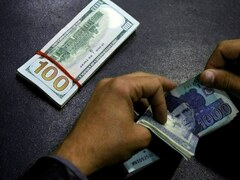The Institute of Cost and Management Accountants (ICMA) Pakistan has urged the government and industry stakeholders to fast-track the adoption of solar energy in the country’s industrial sector, calling it a vital step toward resolving Pakistan’s growing energy crisis and restoring export competitiveness.
In its policy note released on Wednesday, the ICMA presented a comprehensive policy roadmap advocating accelerated industrial solarisation.
The note titled “Should Pakistan Expand the Use of Solar Energy in Industries to Reduce Electricity Costs?” highlighted that electricity tariffs for industrial consumers have more than doubled over the past four years, with a 38 percent surge recorded in FY2023 alone.
With power costs now exceeding Rs54 per unit for industries, Pakistan’s manufacturing sector—particularly critical sectors such as textiles, cement, steel, and fertilizers—is under immense pressure, struggling to remain viable against global competition. In stark contrast, solar energy offers a significantly cheaper alternative at only Rs18 to Rs20 per unit.
ICMA’s policy framework outlined 30 actionable recommendations aimed at removing barriers to solar adoption and promoting a competitive energy environment.
Chief among these is the removal of import duties and taxes on solar panels, inverters, batteries, and other components, which currently contribute to the high upfront costs of solar installations. The institute also recommends introducing green financing options through banks and development finance institutions at concessional rates and calls for prioritising industrial solar projects under the State Bank’s refinancing scheme with streamlined procedures.
The policy note underscores the need to upgrade the national grid and feeder-level infrastructure to facilitate efficient solar integration, while urging the government to standardise net metering policies across all power distribution companies (DISCOs) for transparent and consistent implementation proposes the development of a national hybrid energy policy, enabling industries to draw energy from a mix of grid supply, solar, and third-party sources to ensure reliability and cost optimization.
From crisis to clean energy: Pakistan emerges as top solar market in 2024
To incentivize industrial investment in solar systems, ICMA calls for fiscal measures such as tax credits, rebates, and accelerated depreciation. It also emphasises the importance of establishing solar-ready clusters within Special Economic Zones, allowing industries to benefit from shared infrastructure and secure, lower-cost energy. The report also advocates for increased local manufacturing of solar equipment, which could reduce dependency on imports and spur domestic job creation.
The institute encourages the promotion of energy service companies (ESCOs) that can offer solar systems on leasing or performance-based models, easing financial pressure on industrial users. The Policy Note also introduces forward-looking proposals such as the creation of a legal framework for carbon trading and third-party energy sales, enabling businesses to capitalise on surplus power generation and carbon credits.
The country’s leading accounting body further recommended the establishment of a centralised solar promotion cell under the Alternative Energy Development Board to coordinate implementation efforts, address regulatory bottlenecks, and ensure policy coherence.
Pakistan’s sugar maker to install 200KW solar power plant
It also proposed simplification of licensing procedures, promotion of energy audits to assess solar viability, and the integration of solar initiatives into corporate ESG and CSR strategies. To support long-term industry needs, ICMA calls for partnerships with universities and technical institutions to build a skilled workforce for the solar energy sector.
“Investor confidence can be bolstered through the launch of solar insurance products and the creation of an Industrial Solarisation Fund. Additionally, green bonds issued through the capital markets could open new avenues for financing large-scale projects,” it noted.
To encourage greater solar adoption, ICMA urged revision of industrial electricity tariffs to include time-of-use incentives, alongside the promotion of energy storage solutions to ensure round-the-clock power availability.
The institute suggested making rooftop solar installations mandatory for new industrial constructions and updating building codes accordingly.
“Unused rooftop space across existing industrial infrastructure should be optimised for solar power generation, while peer-to-peer energy trading platforms based on blockchain technology could allow secure and efficient energy transactions between industrial users,” it stated. “Subsidised financing for battery storage systems is also recommended to further enhance solar project feasibility.”
Shift to renewables: Olympia Mills to install 500KW solar power plant
Recognising the importance of awareness and behavioural change, the policy noted called for a nationwide campaign to educate industrial stakeholders on the economic and environmental benefits of solar energy. Lastly, the report urges the government to define clear sector-wise solar adoption targets aligned with the national renewable energy agenda, ensuring structured and measurable progress.
“These strategic measures, if implemented effectively, can significantly lower the cost of doing business, boost industrial productivity, reduce carbon emissions, and position Pakistan as a more competitive player in the global export market,” it added.




















Comments